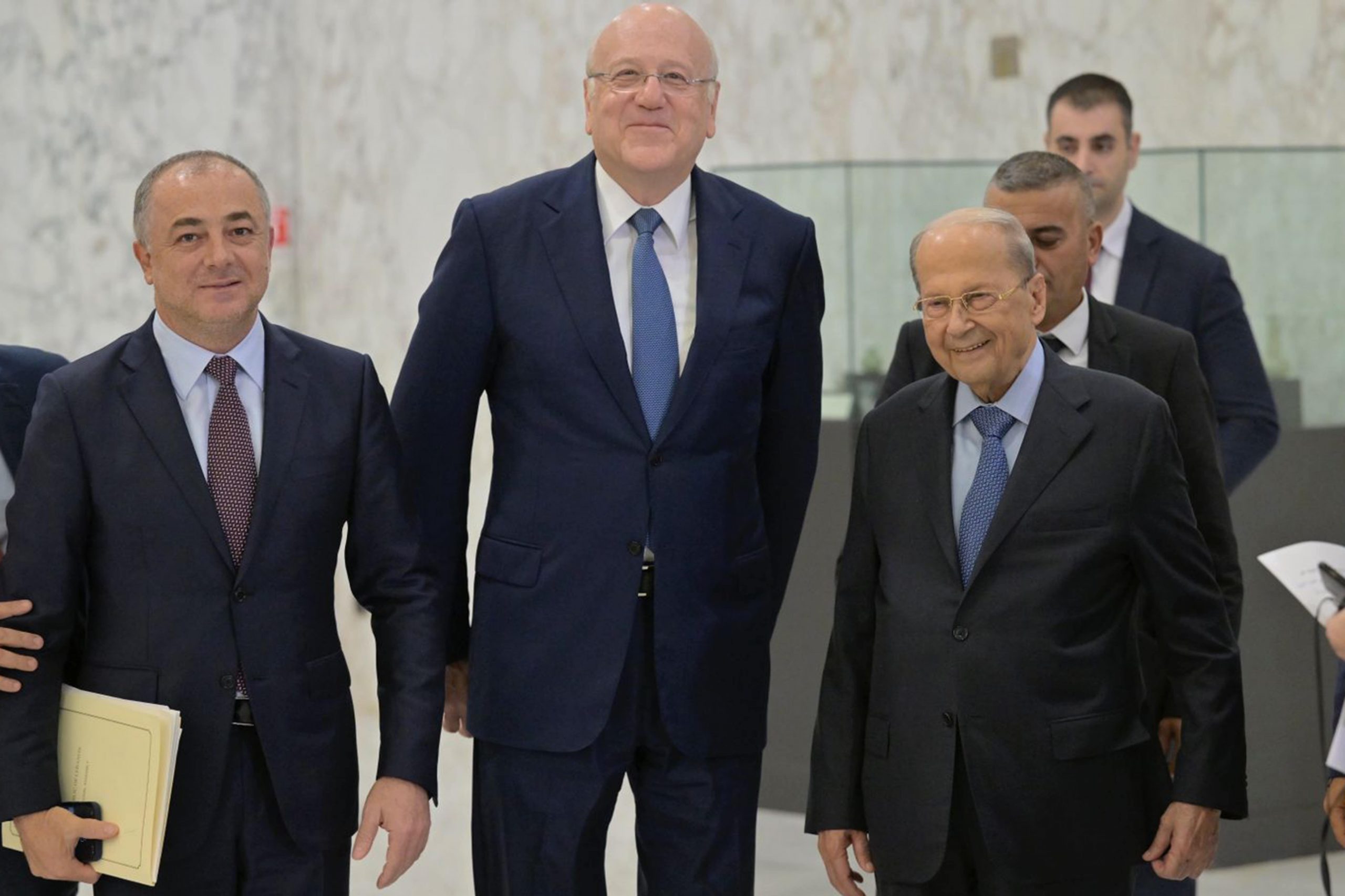Embroiled in prolonged and complicated conflicts with each other, Israel and Lebanon seemed to move toward a historic deal on the share of disputed maritime borders. The disputed area between the two countries is critical as these areas are expected to have substantial gas reserves. The potential gas reserves are vital for both countries for different concerns: Whereas Israel intends to consolidate its energy hub status in the Eastern Mediterranean with the new alternatives, Lebanon simply wants to attain these reserves to resolve one of its chronic problems, that is the energy issue. Therefore, for both countries, it seems like a rational and fairly logical agreement, which can facilitate other constructive steps to bring solutions to the endemic problems between these two countries, including disputed territories, Israel’s illegal military incursions, and violations of Lebanon’s sovereignty.
Background Towards the Deal
Long brokered by the USA, the disputes on the delineation and delimitation of the maritime borders between Israel and Lebanon revolved around Line 1 and, more recently, Line 29. While Israel initially claimed Line 1 as its maritime border, Lebanon eventually claimed Line 29 as its maritime border with Israel, thereby extending its maritime border by approximately 1,430 square kilometers (550 square miles). This new offer by Lebanese officials to the United Nations’ (UN) delegation, which conducts mediation between the two parties, extends the disputed 860 square kilometers (330 square miles) to the 2230 square kilometers (880 square miles), which this time could control Karish field, over which Israel refused any claim. The initial Hof Line proposal, made in 2012 by the US diplomat Frederic Hof, was indeed about to bring a lasting resolution to this long-term conflict, with its share of the then 860 square -kilometers disputed area as 55 percent to Lebanon and 45 percent to Israel.
However, this plan was refused by both countries, and Israel maintained that Lebanon’s declaration of several blocks in its Exclusive Economic Zone (EEZ), such as 8, 9, and 10, violates Israel’s maritime zone. Despite the initial stalled process and recent brief tension between these two countries, UN-brokered talks yielded expected results, and the parties to this dispute recently sent positive messages regarding the possible breakthrough in the long-term disputed maritime zone. Considering that Lebanon is formally at war with Israel, has several territorial disputes with this country, and has lots of complicated problems and tensions with Tel Aviv, this progress and positive messages by the parties have generated some optimism regionally and locally. According to a new plan by US official Amos Hochstein, Line 23 was recognized as the official maritime border between Israel and Lebanon, thus leaving some parts of the Qana field in the Israeli maritime zone and all Karish gas fields in Israel’s control.
With this agreement, Lebanon appeared to gain control of the disputed 860 square kilometers, despite its disclaimer of Line 29, which included some parts of the Karish gas field. As some parts of the strategic and potential hydrocarbon Qana field still sit at the agreed Israel zone, Lebanon agreed to financially compensate Israel in return for complete authority on this field. In this way, both parties seemed to give some reciprocal concessions to benefit efficiently from the hydrocarbon reserves in Qana and Qarish fields. For Israel, the Qarish field is critical for its alleged superior position as the energy hub in the Eastern Mediterranean, and for Lebanon, the Qana field is considered the urgent and required remedy for its endemic energy problem.
Hezbollah’s Delicate Position
Aside from these technical, international law, and energy-based discussions on the recent agreement, Hezbollah’s stance towards this agreement is another intriguing point to mention. Despite being defined as an arch-enemy by Hezbollah, the recent deal with Israel was confirmed by this actor, generating some speculation about an indirect “normalization” between Hezbollah and Israel. For some time, there has been a regional tendency to normalize relations with Israel, prompted specifically by the former Donald Trump administration and embraced by several Gulf countries. Afterwards, several other regional actors, like Morocco and Sudan, enthusiastically welcomed this process. When considering the improving relations between Israel and Türkiye as well as multifaceted dialogue efforts between Iran and some Gulf countries along with Western countries, it manifests the normalization tendency in the region, the one critical part of which is thawing relations with Israel. Furthermore, another normalization process proceeds inside the “resistance camp” comprised of Iran, Syria, Hezbollah and Hamas. In this context, the current rapprochement between Hamas and Syria is observed as well.
However, what will be surprising and unprecedented is even indirect normalization between Israel and any member of the “resistance camp” like Hezbollah. Given that Hezbollah has total and undisputed political control over Lebanese politics, the recent agreement between Israel and Lebanon would not be possible without its consent. Therefore, when considering the recent positive messages given by Hezbollah officials, it seems that Hezbollah welcomed this agreement as well, thus recognizing Israel officially, which contradicted its previous stances. The statement by Israeli Prime Minister Yair Lapid concerning the agreement, which claims that this deal would remove the possibility of conflicts with Israel, and the several statements by Hezbollah officials that they would not challenge the agreement and look at the benefits of this deal, manifest “indirect normalization” between Israel and Hezbollah as well, at least on this problem. Overall, while this agreement provides several benefits to both parties, it still leaves some uncertainties and complexities regarding the usage of the Karish and Qana fields. And despite positive messages by Hezbollah and Israel on this deal, the possibility of future conflicts would reverse the situation in the field. For a lasting and enduring peace between the two countries, there should be a comprehensive peace agreement resolving all border problems and ending the war situation, along with Hezbollah-Israel normalization, which seems recently impossible.










